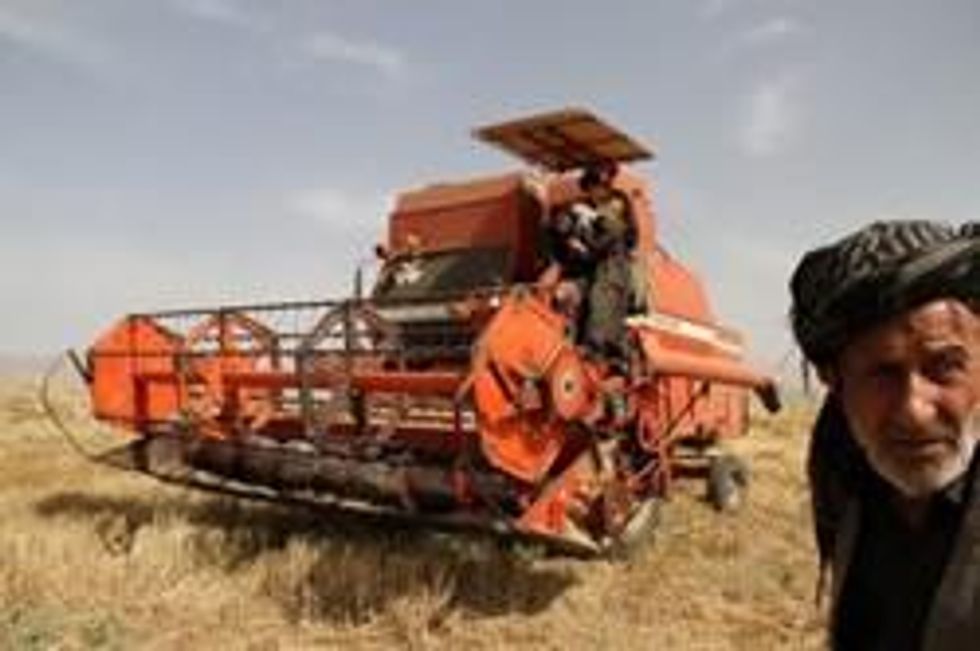In my early teens in Iraq, in the late fifties and early sixties, I used to accompany my father to farms to buy wheat grain for our own consumption, and a few sacks more to sell in the village to make some profit. I remember the discussions between my father and the small farmers regarding the quality of the grain, and whether the dough would stick (hounta khabbaza) to the walls of the clay oven (tennor) in which my mother baked the bread. This particular quality is essential to prevent it falling into the hot embers at the bottom of the oven. The farmers used to assure us of the quality, giving a little history of how the grain had been improved by knowledge sharing between farmers, with the best quality seed being adopted. The system had an inbuilt informal ability to improve the quality of the wheat grain. This method of sharing expertise, and the use of knowledge passed down through the generations were applied to every aspect of farming and fruit orchards to improve the quality and quantity of the produce.
An article on
GRAIN website entitled "
Iraq's new patent law: a declaration of war against farmers" gives the origin of this law and its detrimental effect on agriculture in Iraq thus:
"When former Coalition Provisional Authority (CPA) administrator L. Paul Bremer III left Baghdad after the so-called "transfer of sovereignty" in June 2004, he left behind the 100 orders he enacted as chief of the occupation authority in Iraq. Among them was Order 81 on "Patent, Industrial Design, Undisclosed Information, Integrated Circuits and Plant Variety." This order amends Iraq's original patent law of 1970 and unless and until it is revised or repealed by a new Iraqi government, it now has the status and force of a binding law. With important implications for farmers and the future of agriculture in Iraq... The purpose of the law is to facilitate the establishment of a new seed market in Iraq, where transnational corporations can sell their seeds-genetically modified or not, which farmers would have to purchase afresh every single cropping season". For generations, small farmers in Iraq operated in an essentially unregulated, informal seed supply system. Farm-saved seed and the free innovation with an exchange of planting materials among farming communities has long been the basis of agricultural practice. This is now history. The CPA has made it illegal for Iraqi farmers to re-use seeds harvested from new varieties registered under the law."
Iraq, lest we forget, is ancient Mesopotamia, the land between the two rivers, the Tigris and Euphrates; this is the land where organized agriculture was invented around 5000 BC. The Sumerians, Assyrians and Babylonians are the ancestors of the people of Iraq and through their work and ingenuity they went on to establish the great cities of Ur and Babylon.
This patenting law, in many instances, involves the pirating of knowledge gained by farmers sharing their knowledge and experience through millennia:
"Such kind of "biopiracy" is fueled by an Intellectual Property Right (IPR) regime that ignores the prior art of the farmer, and grants rights to a breeder who claims to have created something new from the material and knowledge of the very farmer."
An Iraqi farmer described the pitiful state of today's agriculture:
"Since the invasion prices have skyrocketed, I don't know why! So many farmers have stopped farming; they cannot afford it anymore."
The U.S agribusiness is now reaping huge profits from this collapse, with Iraq importing agricultural products worth one billion dollars a year.
The GRAIN article concludes with the following words:
"While political sovereignty remains an illusion, food sovereignty for the Iraqi people has already been made near impossible by these new regulations. Iraq's freedom and sovereignty will remain questionable for as long as Iraqis do not have control over what they sow, grow, reap and eat."

